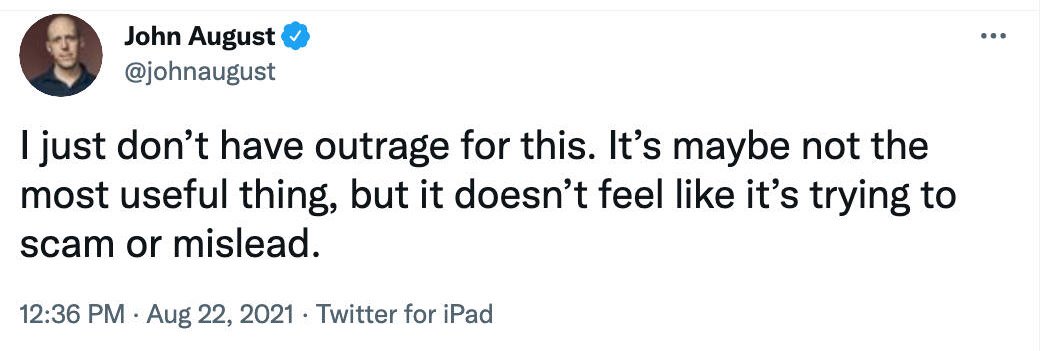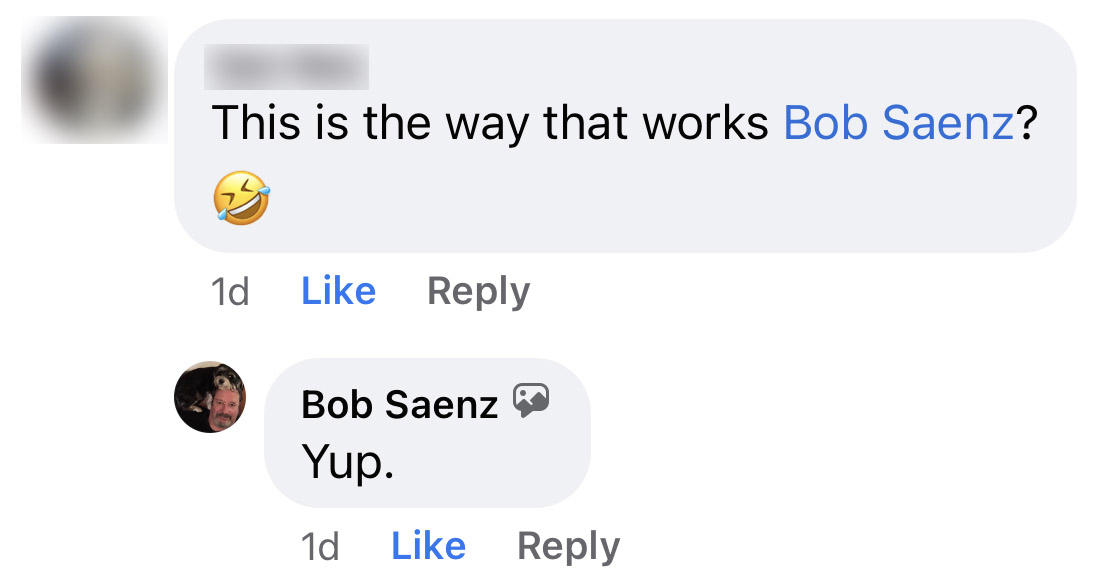Accolades and Criticism
Critical Responses To Screenwriting Shit
As mentioned on the front page, Screenwriting Shit has received a mix of critical responses, similar to what you might expect from King of The Hill characters.

Wow, John August! He wrote some great movies. He also hosts THE BEST SCREENWRITING PODCAST EVER. This really means a lot. Thank you, sir!
Still, though, if this were King of The Hill, is John’s response more of a Hank or a Dale line?

Ziggy, you’re a freak and a scholar. This is probably going to remain our all-time favorite response to the site.

Bob Saenz, if you don’t know, wrote a very good screenwriting book called That’s Not The Way It Works, and you should definitely read it, it explains SO MUCH of how the business and the art actually do work… That is, after you read a bunch of actual scripts first.
Bob also often answers a ton of beginner questions in The Big Facebook Screenwriting Group on Sundays. You don’t have to read his book before bugging him there, but it would be the polite and logical thing to do.

We would be extremely honored to assist the man who introduced us to the delicious Big Kahuna Burger in learning how to write a screenplay and break into the film business as a writer, but there is a high degree of probability that Mr. Samuel L. Jackson does not need the vast majority of the information presented on this site, and can almost certainly self-finance his own projects at this point if he cares to do so.
What’s the best way to deal with criticism as a screenwriter?
Cry first. Yes, just let it out. Then… learn.
Critical responses to your work can be far more useful than accolades. You need good notes, it’s too easy to be too close to the work and not see the big picture that’s right in front of you.
If the feedback you’re getting doesn’t bother to take your work apart they really aren’t useful notes. This is why notes you might get from relatives and non-writers aren’t usually very helpful. Find smart peers who are great writers and who will rip your work to shreds and then help you put it back together that much stronger.
Taking in and processing criticism well is one of the best skills you can have as a working writer.
Often if a criticism seems unjustified it’s because the person offering it has a vastly different perspective. Learn about that perspective and maybe you can get them on your side next time. If you’re getting the notes from them directly, once they finish talking you can ask questions (without placing any judgment on them), like “why did you feel X was Y?” There might be a business reason for the note, and you can help figure out a better way to deal with their needs without compromising the story. “Can we explore that for a moment?” Knowing your audience is very important. Don’t expect super useful notes from non-writers, but always be respectful of the effort. Responding well to all the feedback you might get from peers, instructors, and employers is paramount with a snowcap.
Critical Response To Screenwriting? Just breathe.
If you aren’t used to criticism, being given notes on your creative work can be extremely uncomfortable. The work feels like a part of you. This lady is taking a cherished part of you that you invested hundreds of hours into producing and picking and prodding it to death from right across this conference table! But she’s really not, it just feels that way. Remind yourself in these situations: this is business.
You’ll likely feel attacked the first few times, and maybe every time, but don’t act on that.
You must shift your mindset to almost passively taking in the good stuff and throwing out the bad stuff. It is very important to be able to take notes with a poker face. You should not react immediately or correct someone giving you notes.
Always let someone finish speaking before you respond to their notes if you do respond at all. It’s a better idea to say you need some time to process the feedback, to just say thank you or even acknowledge something in what they said as a positive. You can ask neutral questions in response to the feedback about things you thought were important that they did not address, but if all the notes were unhelpful you may want to just move on. Being curious is great, but don’t interrogate the person giving you notes. Don’t berate them for missing something. Even if the notes are garbage, be polite, and lean toward the zen. Here is why…
Joe’s Incident
There is a great chapter in screenwriter J. Micheal (Joe) Straczynski’s autobiography, Becoming Superman (we linked to the audiobook because its read by the supremely talented actor Peter Jurasik), wherein he writes about getting notes from consultants for the television network when he was working on a popular kids cartoon series in the 80s (it rhymes with Boastbusters), and how badly he messed up in a meeting by immediately responding to the criticism of some just vile incompetent people.
Now, these charlatan consultants across the conference table were clearly full of enormous quantities of shit. From Joe’s account, their eyeballs should have been floating in it. And taking all their recommendations actually almost tanked one of the most popular cartoons on TV, which was only saved by throwing out all the consultants’ notes for the next season. Joe Straczynski has a degree in psychology and he immediately recognized that their “research” was bullshit, but it really doesn’t matter that he was right. He interrupted and contradicted people who were being paid a lot of money to “help” the network.
He came off as arrogant and unwilling to listen in front of major network executives. You don’t want to ever be seen that way as a writer for hire, it will seriously impact your ability to get more work in the industry, really more than almost anything else you could do.
Joe also embarrassed the network, because the consultants were linked to a religious group critical of all their children’s programming, and taking the meeting didn’t necessarily mean the network was going to insist on acting on the notes. But they then felt they had to because of the situation Joe’s blow-up created. It almost destroyed his now-storied career (we are all Kosh) before it even got started.
Knowing where your critics walk their dogs at night is stalking.
Seriously, don’t go after your critics if it’s their job to be critical. It’s your job to take in the helpful bits of information and edit out the rest. Edit the criticism down to what you can actually use. But you do that privately.
Do not engage with critics in public. Don’t call them out on Twitter, on stage at Comicon, or in a press interview. It’s not worth it.
The only exception should be if they’ve presented some kind of reasoned debate, and then you can calmly respond in kind. But don’t spend too much time on it. Don’t do it in public and certainly don’t try to embarrass them.
You are not in a pissing contest with critics, most of them will never give a shit about you, only what you can do for them.
Don’t send hateful emails or leave nasty voicemails, they’ll just turn around and post them online. If the critic is an idiot and their work is all drivel, they won’t last in their job. Don’t risk what you’re doing over their nonsense. Take public criticism for what it is: free press. The audience will decide if something is good or not. If you like horror movies and someone trashes a new horror movie for being ridiculous, doesn’t that just make you want to see it more? Taste is relative. Accolades and criticism can’t hurt you.
Feeling critical? Tag @FashionTechGuru on Twitter.